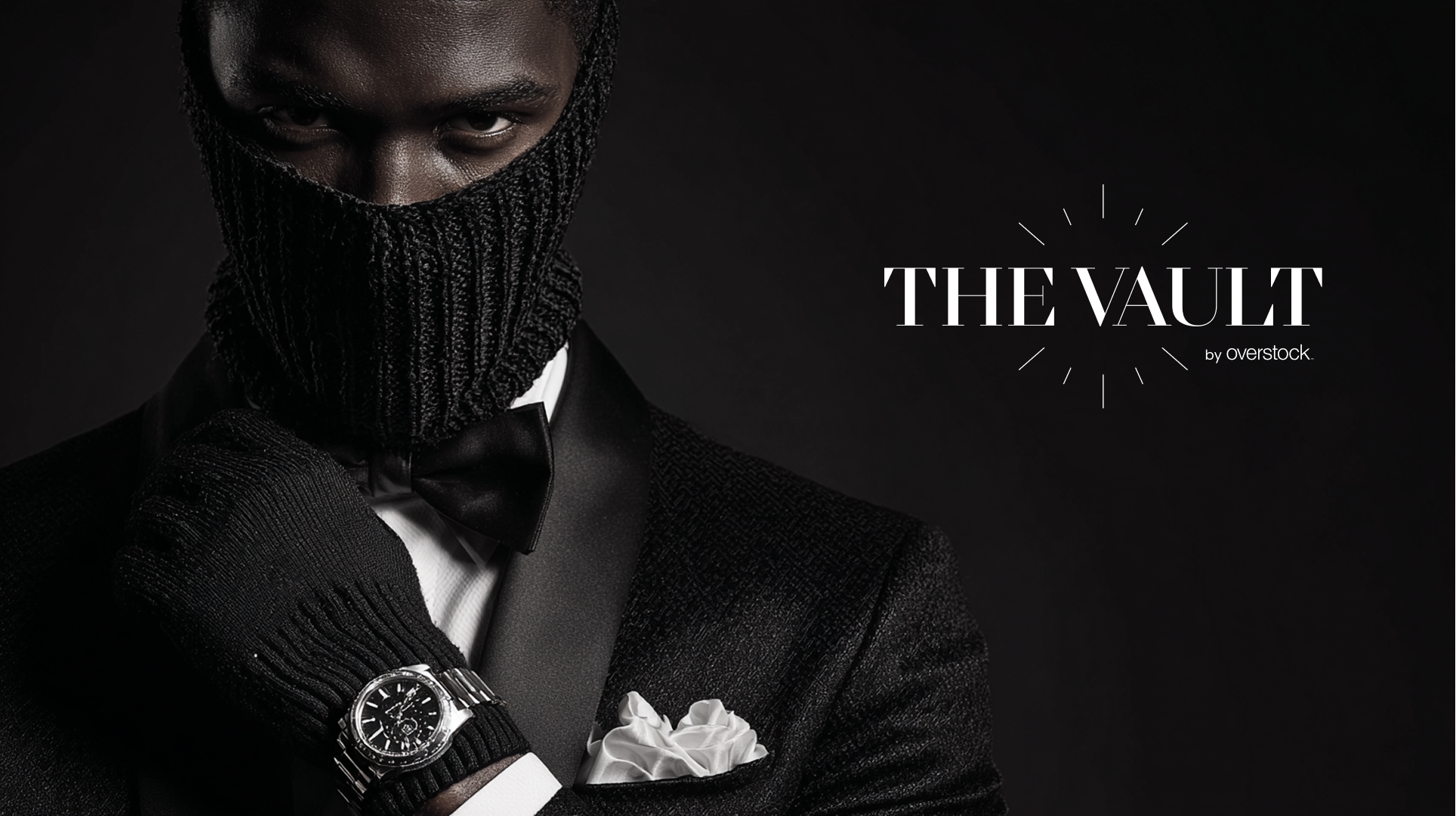
How Sightbox crafted Overstock’s Vault campaign using AI tools and human insight.

According to authors Betsy Wills and Alex Ellison in their book Your Hidden Genius, Idea Generation is one of the four Core Aptitudes that follow us throughout our lifetimes. These genetic traits can be improved and refined, but most are innate, revealing themselves without our knowledge or intent. In many ways, they are things we cannot not do.
When analyzing Idea Generation, Wills and Ellison break it down into three categories of thinker: the Brainstormer, who has an unending abundance of ideas (both good and bad); the Concentrated Focuser, for whom tunnel vision comes naturally; and the Idea Contributor, who bridges the two.
As an agency in the creative field of strategy and design, you might expect our office to be teeming with Brainstormers—walls covered in sticky notes and marker sketches. And you’d be half right. You see, our job is not so much to invent new ideas as it is to expand and focus the ideas already running through the minds of the founders we work with.
Some of those founders are the Brainstormers. Meeting with them is like stepping into a thunderstorm—flashes of brilliance everywhere, sometimes overwhelming, always full of energy. Our job isn’t to stop the storm, but to channel the downpour into a steady river, one that has direction and power instead of flooding everything in sight.
Others are the Concentrated Focusers. Working with them is more like standing in the blazing sun—intense and focused, but sometimes dry and daunting. Our role is to actually get their head into the clouds and change their perspective. That shift opens theirs horizons to new ideas they might never have seen in the heat of the day.
Between the storm and the drought is where we do our best work—balancing extremes, adjusting the forecast, and helping founders find the climate where their ideas can truly grow.
But in order to do this work, we need a team that spans the spectrum as well. We need Brainstormers who can generate endless ideas from the briefest of briefs. We need Focusers who fall in love with a single idea and will see it through to perfection. And we need Contributors, who connect the dots and shape the culture of the agency into a balance of output and ownership.
Much like Wills and Ellison suggest, these actions are sometimes involuntary. In fact, every successful creative agency operates on these principles, whether they know it or not. But when we become aware of them, we can use them to become better. Better creatives. Better founders. Better geniuses.
RELATED POSTS

How Sightbox crafted Overstock’s Vault campaign using AI tools and human insight.

The balance between laundry and beach days, between efficiency and enrichment, is what makes life, and business, worthwhile.